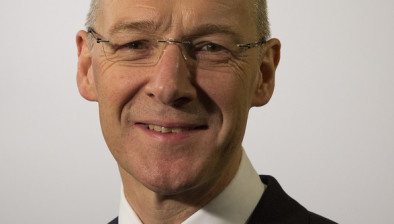Scotland’s GDP fell by 1.4% in November

Fiona Hyslop
Scotland’s GDP is provisionally estimated to have fallen by 1.4% in November, as restrictions on economic activity were extended or reintroduced across large parts of the country.
This is the first fall in GDP after six months of growth following the easing of the first lockdown in 2020. Output remains 7.1% below the level in February, prior to the direct impacts of the COVID-19 pandemic.
In November, output continued to grow in the production and construction sectors, but fell by 2.2% overall in the services sector. Within services, there were falls in nine of the fourteen subsectors, with the largest contributors to the drop being accommodation and food services, retail and wholesale, other personal services, and arts, culture and recreation.
These are the subsectors which are directly affected by the restrictions in the local protection levels which were in place across Scotland throughout November.
Output in the production sector increased by 0.8% overall, with growth in manufacturing, mining, water and waste offset by a fall in the electricity and gas supply industry. Construction sector output is estimated to have increased by 1.8% compared to October.
Economy secretary Fiona Hyslop said: “Like the rest of the UK, Scotland’s economy has been badly hit by the coronavirus (COVID-19) pandemic. As a result of the restrictions we have had to put in place control the virus, our economy is now 7.1% smaller than it was pre-COVID-19, while over the same period UK economy has shrunk by 8.5%. Combined with the huge economic uncertainty caused by Brexit, this remains an extremely tumultuous time for the economy and jobs.
“As a responsible government, we continue to do all we can to protect Scotland’s economy and ensure that as many people as possible keep their jobs. This is backed by our package of support to businesses that totals over £3 billion, and our support for economic recovery worth more than £1bn.
“We are using all the powers we have to rebuild a stronger, more resilient and sustainable economy for Scotland – with a laser focus on creating new, good, green jobs. As part of that, our £60 million Young Person’s Guarantee will ensure every young person has access to a job, education or training and we have also announced plans to increase support for older workers to re-skill in growth areas, such as low carbon industries.”
She added: “Tomorrow the Finance Secretary will set out our next budget which will outline our plans to support the Scottish economy going forward. We continue to call for the Scottish Parliament to be granted the additional powers it needs to properly manage the response to the crisis as we prioritise recovery.”
Kevin Brown, savings specialist at Scottish Friendly, added: “The rise in GDP during the third quarter of 2020 coincided with lockdown restrictions being significantly relaxed. However, when you compare it to the same period in 2019, Scotland’s economic output fell by -9.5% year-on-year.
“The pandemic has hit every industry hard and these figures show just how far the economy still has to go to get back on level terms with last year. It is unclear what impact the lockdown measures introduced at the end of 2020 will have had on Q4 output, but what is certain is that the economy is in for a bumpy ride.
“In the current lockdown, household spending remains heavily restricted and while many families on furlough will have sadly suffered a loss of income, others will be in a position to save more of their disposable income than they may be accustomed to.
“As lockdown is gradually eased, it will be hoped that these households will feel confident enough to loosen the purse strings. If they do, we could see a major spike in consumer spending as the pent-up demand to enjoy some of their extra cash is finally released.”










